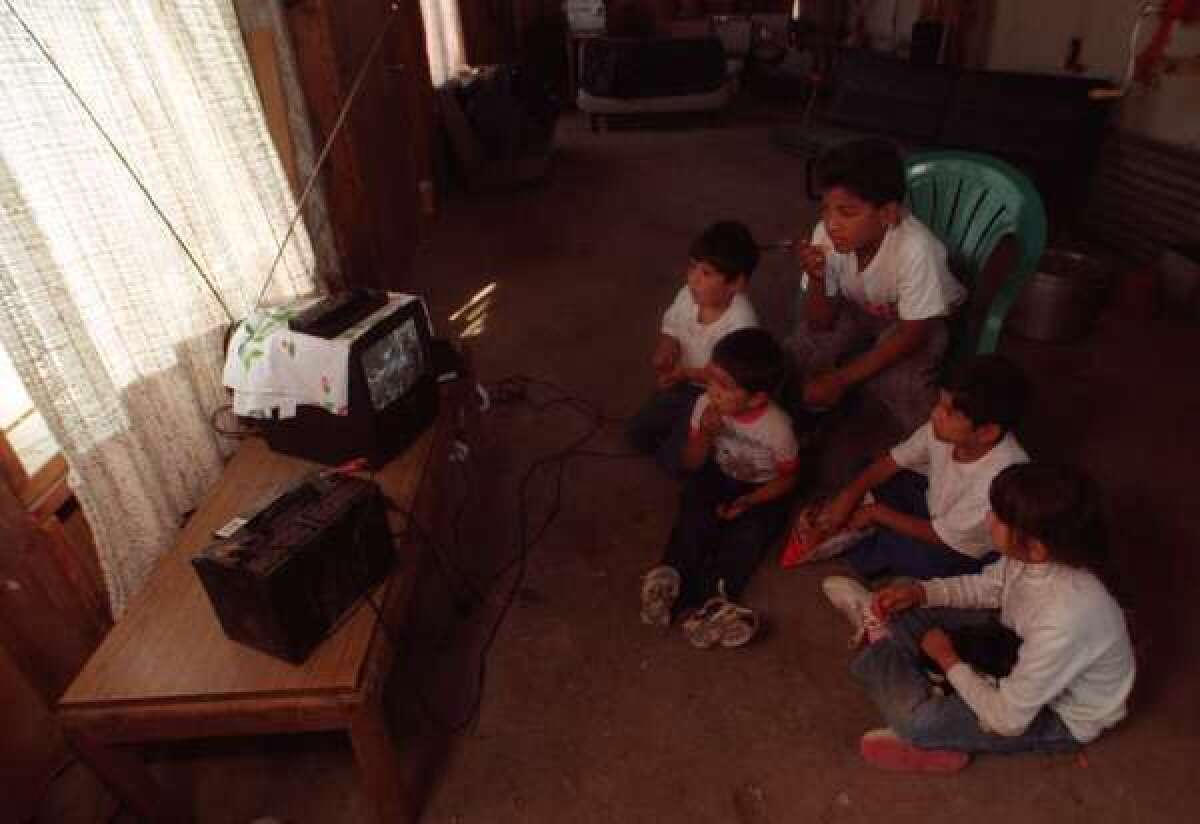Parents might need a screen time rule, too

- Share via
Maybe it’s time for “screen time” for parents, too.
To limit kids’ television watching, the ubiquitous rule restricting the time they’re allowed to spend in front of a TV or computer screen isn’t as helpful as something more basic: how much time parents spend watching TV, scientists say in an article out Monday in the journal Pediatrics.
“Do as I say, not as I do” might be a foundation for Homer Simpson’s style of parenting, but it’s not so effective, the scientists say.
“Parent television viewing is a stronger predictor of child television viewing than traditional media ‘access’ and ‘rules’ variables regardless of child age,” the scientists wrote. The parents’ habits had a stronger relationship to their kids’ habits than even having a TV in the child’s bedroom, the researchers said -- something that is frequently criticized by people who advocate for less screen time for kids.
Every hour of parental viewing was associated with an additional 23 minutes of viewing by the child, said the researchers, who were from the University of Pennsylvania.
The researchers surveyed 1,550 parents with chidren under 17 in 2012, asking questions about television watching on weekdays and weekends, how many TVs are in the house, watching with children and more.
The participants were an average age of almost 39, with almost two children. Eighty-six percent were married or living with someone and most had jobs. The parents reported almost four hours of daily TV viewing, which didn’t vary based on the kids’ ages. Seventy percent had TVs in their bedrooms, and an average of three TVs in the home. They reported children’s daily viewing at an average of three hours.
The researchers are not down on TV; they say families can spend time watching shows together -- and that provides topics of conversation and bonding time.
The American Academy of Pediatrics has for more than a decade recommended a limit of non-educational TV viewing of less than two hours a day. The researchers say that has had “limited success” in reducing children’s screen time. That’s important, they say, because too much TV is associated with obesity, poor sleep, inactivity and poor academic achievement.
mary.macvean@latimes.com
@mmacvean on Twitter







